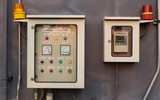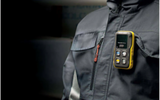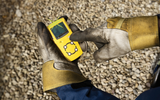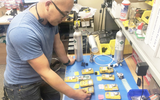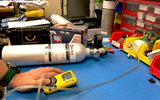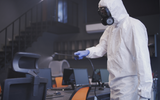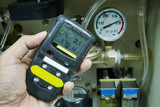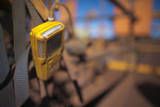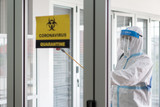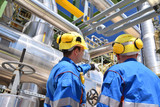Blog
Where Should Fixed Gas Monitors Be Mounted?
Gas monitors are designed to detect harmful substances that can affect air quality and put workers at risk. But the monitor needs access to the air in question to do its job. Choosing where to install fixed gas monitors depends on a number of factors, including the work environment, who’s entering the space, and the target gas. Use this guide to find the right place for your fixed 4-gas monitor, so you can stay safe in any situation.Breathing ZoneWhen monitoring the space for oxygen to maintain
…
May 21st 2021
Honeywell BW Gas Detection: Icon Series Spotlight
PK Safety carries BW gas detectors because they’re well-made and trustworthy, but also aim to improve and innovate. We’re excited to carry the latest in their gas detection devices: the BW Icon Series portable multi-gas monitors.
The
Honeywell BW Icon 4-Gas Detector has a 2-year fixed life, so you won't need to replace sensors or batteries. This 4-gas detector simultaneously monitors oxygen (O2), hydrogen sulfide (H2S), combustible gas (LEL) and choice of either carbo
…
Mar 31st 2021
How to Clean Your Gas Monitors
Thanks to the COVID-19 pandemic, workplaces are cleaning more thoroughly and frequently. If you’re in an industry that uses gas detection equipment, keeping your gas monitors clean is more important than ever to ensure you’re protected not only from atmospheric hazards, but viral hazards as well. When you clean your gas monitors, keep these procedures and precautions in mind, especially if you’re cleaning to protect against viral transmissions.
Cleaning
It’s important to properly clean
…
Jan 20th 2021
Confined Space Gas Detector Requirements: How to Select a Gas Detection Kit for Your Confined Space
Confined spaces can pose a serious risk to the health and safety of your team. Whether you are repairing damaged equipment, building a new structure, or investigating a potential leak, you need to make sure your team can safely enter confined spaces on the job. Oxygen tends to be in short supply in confined spaces, including tunnels, crawl spaces, basements, manholes, and other tight areas.
To protect your team, you need to continuously monitor the space for hazardous gases using a gas dete
…
Dec 18th 2020
What is Gas Monitor Bump Testing & Calibration
Air monitor and gas monitor calibration and bump testing is an important topic in many industries, especially oil and gas. Many professionals use these monitors to protect themselves from hazardous gases and other airborne substances known to cause injury, illness, and death. It’s difficult or impossible to detect or judge atmospheric gas levels without a gas detector because many are odorless, colorless, and tasteless.Gas monitors, like all equipment, are only as effective as the people using t
…
Dec 18th 2020
What symptoms can occur from carbon monoxide exposure?
If you’re occupying a space where fuel is burned and fumes have an opportunity to build up, you’re at risk for carbon monoxide (CO) poisoning. CO is an odorless, colorless gas that’s hazardous to inhale, causing uncomfortable symptoms at low levels and death at higher levels. EMS, EMT, police and fire departments face this
potential danger when responding to reports of flu-like illnesses or unconscious citizens who may be involved in CO poisoning themselves.
Avoid workplace injurie
…
Dec 17th 2020
Which Gas Detection Device is Right for Your Workplace?
Choosing a gas monitor or detection device depends on the nature of your workplace and how your employees interact with the space. Learn about the pros and cons of different types of gas monitors to make the right choice for your business.
Three Types of Gas Detectors:
Portable gas detectors
Fixed gas detectors
Gas detection tubes (Colorimetric detection devices)
Portable Gas Detectors
Portable gas monitors are designed for employees working in the field or
…
Sep 30th 2020
Purge Test: Gas Detection & Purge Testing
When taking a gas pipeline offline or installing a new one, utility crews must first treat the confined space with inert gas, such as nitrogen, to limit the chances of combustion. After the pipeline has been treated, workers should test the space for the presence of hazardous gases. This is what’s known as purge testing. However, this is not the same as conventional gas detection. The pipeline will contain little oxygen and high concentrations of natural gas, which could damage the gas detect
…
Sep 9th 2020
Hydrogen Peroxide Gas Detectors Should Be Used When Disinfecting Workspaces
Vaporized hydrogen peroxide (VHP) is often used to disinfect and decontaminate work environments, including classrooms, medical and manufacturing facilities,
confined spaces, and other areas that are designed for prolonged human occupancy. In the face of the coronavirus pandemic, all types of businesses will need to thoroughly disinfect their workspaces before bringing their employees back to work to minimize their chances of exposure. The coronavirus can live on surfaces for up to 72 hour
…
Jun 23rd 2020
Does Your Business Need Fixed or Portable LEL Gas Detector?
On May 16, 2020, 11 firefighters were hospitalized after responding to multiple buildings that caught fire after an explosion in downtown Los Angeles. Though officials are still investigating whether hazardous materials were involved, tragic incidents like these could potentially be avoided with the use of Lower Explosive Limit (LEL) detectors.
Depending on what type of business you conduct, an LEL detector will help you be more aware of the buildup of flammable gases, while measu
…
May 22nd 2020


